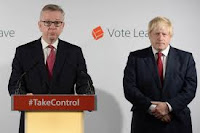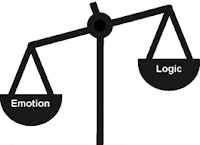Good Deal or Bad Deal for Brexit?
Today the Cabinet considers the “deal” discussed into the early hours between the UK and the EU27’s negotiating teams.
The media is focusing on what is in it. But we mustn't lose sight of whether it contains everything that's needed. Nor lose sight of the costs. Overall, is it a good deal? Or a bad deal?
Often referred to by the media as the Withdrawal Agreement, I understand there are two documents:
This follows Article 50(2) of the Lisbon Treaty, that requires that “…the Union shall negotiate and conclude an agreement with that State, setting out the arrangements for its withdrawal, taking account of the framework for its future relationship with the Union.”
The “Framework for the Future Relationship” should cover at least three key aspects, if not in the Withdrawal Agreement:
If the Framework does not cover all these issues at a level of ‘Heads of Agreement’, it would be leaving such matters to the transition period. That would mean the UK would be leaving the EU next March 2019 ‘blind’. A 'Blind Brexit'. Nobody voted for that.
Indeed if the deal does not cover all these issues adequately, then it is not a ‘deal’. Whether the terms in it are acceptable or not.
Furthermore as yet there has been no mention of the annual cost of the future relationship. Currently the UK pays around £150 million pounds a week to the EU, net of rebates and money that comes back (whereas the £350m on the bus was gross). That’s around £8 billion a year net.
A figure of arround £40 billion payable by the UK to the EU has been suggested in the Withdrawal Agreement to cater for past commitments. Is this being reduced for future contributions? We need to see the final figures.
Or is this ‘deal’ a very bad deal indeed?
The media is focusing on what is in it. But we mustn't lose sight of whether it contains everything that's needed. Nor lose sight of the costs. Overall, is it a good deal? Or a bad deal?
Often referred to by the media as the Withdrawal Agreement, I understand there are two documents:
- Withdrawal Agreement, closing off the past
- Framework for the Future Relationship
This follows Article 50(2) of the Lisbon Treaty, that requires that “…the Union shall negotiate and conclude an agreement with that State, setting out the arrangements for its withdrawal, taking account of the framework for its future relationship with the Union.”
The “Framework for the Future Relationship” should cover at least three key aspects, if not in the Withdrawal Agreement:
- Future trading relationship, both for goods and services
- Other collaborations, such as aviation, medicine and security
- Impact on people:
- UK citizens living in EU27 countries
- EU27 citizens living in UK
- Future arrangements to visit, work and live in the other territory
If the Framework does not cover all these issues at a level of ‘Heads of Agreement’, it would be leaving such matters to the transition period. That would mean the UK would be leaving the EU next March 2019 ‘blind’. A 'Blind Brexit'. Nobody voted for that.
Indeed if the deal does not cover all these issues adequately, then it is not a ‘deal’. Whether the terms in it are acceptable or not.
Furthermore as yet there has been no mention of the annual cost of the future relationship. Currently the UK pays around £150 million pounds a week to the EU, net of rebates and money that comes back (whereas the £350m on the bus was gross). That’s around £8 billion a year net.
A figure of arround £40 billion payable by the UK to the EU has been suggested in the Withdrawal Agreement to cater for past commitments. Is this being reduced for future contributions? We need to see the final figures.
Or is this ‘deal’ a very bad deal indeed?




Comments
Post a Comment